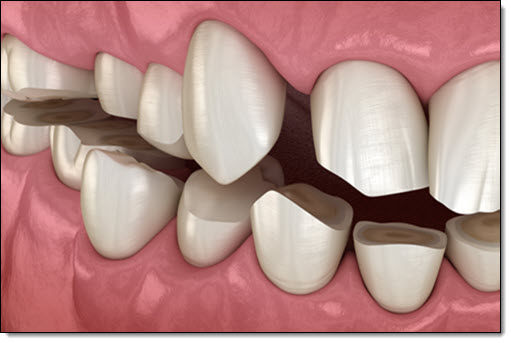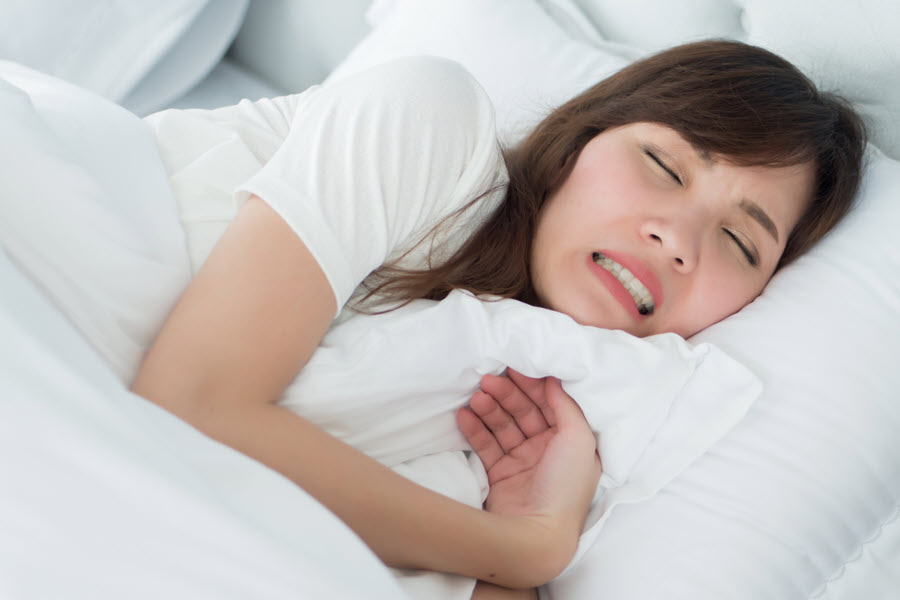Bruxism means grinding or clenching your teeth. Many people grind their teeth at night without knowing it. This condition affects children and adults alike. Left untreated, bruxism can lead to serious dental problems and jaw pain.
Common Causes of Bruxism
 Stress and anxiety are leading causes of teeth grinding. Emotional tension often builds up during the day. At night, this stress can show up as grinding. Sleep disorders like sleep apnea may also trigger bruxism. Some people grind their teeth due to misaligned bites or crooked teeth.
Stress and anxiety are leading causes of teeth grinding. Emotional tension often builds up during the day. At night, this stress can show up as grinding. Sleep disorders like sleep apnea may also trigger bruxism. Some people grind their teeth due to misaligned bites or crooked teeth.
Caffeine, alcohol, and tobacco can increase the risk. These substances affect your nervous system and may worsen grinding during sleep. Certain medications, especially antidepressants, may also cause bruxism as a side effect.
Signs and Symptoms
Waking up with a sore jaw is a common sign. Other symptoms include headaches, tooth sensitivity, or worn-down teeth. You may notice chips or cracks in your teeth. Your partner might hear you grinding during the night.
Tight jaw muscles and earaches can also indicate bruxism. In severe cases, people develop TMJ disorders or facial pain. Dentists often spot the damage during regular exams.
How Bruxism Affects Oral Health
Grinding wears down enamel and exposes sensitive tooth layers. This increases the risk of cavities and fractures. Clenching puts extra pressure on teeth and jaw joints. Over time, this can lead to chronic jaw pain and limited movement.
Bruxism can also damage dental work like crowns or fillings. Repeated grinding shortens teeth and changes your bite.
How to Prevent Bruxism
- Reduce daily stress with calming routines. Try yoga, meditation, or deep breathing to relax your body and mind. Avoid caffeine and alcohol, especially in the evening. These substances can increase nighttime grinding.
- Establish a consistent bedtime routine. Create a calm, quiet space for restful sleep. Avoid screens before bed, and go to sleep at the same time each night.
- Wear a custom night guard if you grind your teeth. Your dentist can create one that fits perfectly. It cushions your teeth and reduces damage from grinding.
- Correct misaligned teeth or bite problems. Orthodontic treatment may help align your jaw and stop clenching. Physical therapy or jaw exercises may also relieve tension.
- Stay Consistent and Monitor Symptoms
Bruxism requires regular monitoring and treatment. Visit your dentist to check for signs of damage. Let them know if you feel jaw pain or headaches. The sooner you address bruxism, the easier it is to manage.
With simple habits and professional care, you can prevent damage and protect your smile from the effects of teeth grinding. If you grind your teeth at night, we can help. Schedule your appointment today for an evaluation of your treatment options.

